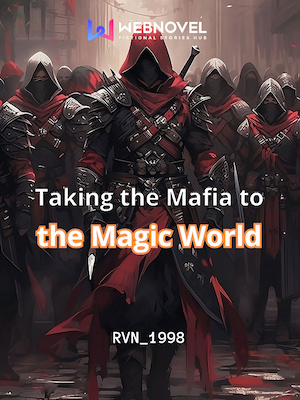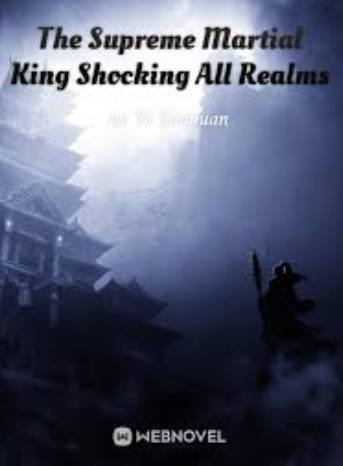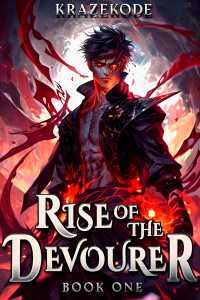Chapter 612: new standard
There was once a sentence in the media to describe the development of Marvel-Stan Lee belongs to Marvel's past, and Kevin Fitch shapes Marvel's future.
Ronan has not been in contact with Stan Lee, but it took Kevin Fitch for two hours to impress him extremely.
When living on the other side of the Pacific Ocean, Ronan read a lot of news about behind-the-scenes production because of the Marvel Cinematic Universe.
Stan Lee grew up with only magazines and magazines, while the most popular cultural consumer product during Kevin Fitch's growth was movies.
They do not personally write the script at Marvel, but they will set the tone and outline for each work, leaving each work with a deep personal mark.
The most important thing is that both Stan Lee and Kevin Fitch as leaders once created a universe for Marvel.
Marvel's "Avengers Project" is an extremely important part of the development of Relativity Entertainment. Ronan attaches great importance to it. He had an interview with Kevin Fitch. Kevin Fitch had at best passed his first test.
Ronan is also worried about accidents and must ensure that Kevin Fitch is indeed capable.
In the following two days, Ronan met with Kevin Fitch twice.
After the fourth meeting, Ronan showed him the "Avenger Project" under the premise that Kevin Fitch signed a strict confidentiality contract.
Kevin Fitch was very surprised, surprised at Ronan and the ambition of Relativity Entertainment, and even more surprised at such a long-term plan.
The man behind the success of the Marvel universe has further strengthened his idea of participating in the Marvel superhero movie.
"Frankly speaking, the difficulty is very high, and the risks should not be ignored." Kevin Fitch did not lose his thinking because of such a huge plan. Instead, he reminded Ronan: "The stories of different movies are intertwined. It’s a very confusing idea. If one or two films are unsuccessful, the entire series may all face failure."
Ronan said: "As long as I am anxious for enough talents, I believe that this plan can be realized. When I acquired Marvel, I had high expectations for Marvel. I also believe that the development of Marvel can far exceed mine. Expectations."
If someone else said this, Kevin Fitch would sneer. After all, the actual situation of Marvel is now there, but it is particularly convincing to say it by a gold medal producer and film investor who created the miracle of Hollywood development. force.
Ronan continued: "The goal of the Avengers Project is very clear, to define superhero movies in the new era, expand their relevance, and set a new standard for such movies! Kevin, success cannot rely on luck. This requires Talent, ability, vision, enthusiasm and courage, I believe you will do it."
Kevin Fitch understood that after several contacts and in-depth exchanges, he had won Ronan’s approval, and immediately said: “I don’t have Peter Parker’s spider-sensing, but I’m confident that I can hit the market and let the Avengers The planned movie can always make money like the "Spiderman" movie."
There is no doubt that Kevin Fitch is a smart man, who knows what film companies and investors want most. At this time, talking about film art is all useless nonsense.
Producers don’t want to make money for the production company. Why should the production company use you?
After many contacts, side understandings, related assessments, etc., after a series of procedures, Ronan decided to use Kevin Fitch as the associate producer of "Iron Man".
Unlike other previous film projects, this will be the "Iron Man" project second only to Ronan in the future, and will actually be responsible for the work of the crew.
Superhero movies such as "Superman", "Batman", "Blade Warrior", "X-Men", "Spiderman", "Catwoman", "Dare Demon", etc., despite success and failure, they are super The hero movie made a way out.
Marvel is not the creator of superhero movies. Before Marvel launched Iron Man, DC's classic IPs "Superman" and "Batman" had been remakes many times.
These predecessors have proven that superheroes have a certain market appeal and cross-cultural communication.
Frankly speaking, we can only start with "Iron Man" as a successful start, step by step to build Marvel, and drive the poorly-known comic heroes behind.
Relativity Entertainment conducted a simple online survey on Doctor Strange and the Bank Guard. The survey results showed that among 100 people in the United States, only two knew about Doctor Strange and the Bank Guard.
In the world, this number is infinitely close to zero.
The adaptation of these comic characters can only be driven by the cascading effect.
Ronan believes that, as long as it works properly, Marvel superhero movies will be enough for relativity entertainment for twenty years or even longer.
As long as people are willing to watch superheroes save the world, Marvel will not be killed.
Before May, under the impetus of Ronan and Relativity Entertainment, Marvel Entertainment officially signed a contract with Kevin Fitch to hire Kevin Fitch as the second producer of the "Iron Man" project.
When Ronan couldn't focus all his energy on one crew, Kevin Fitch knew very well that he was actually the head of the "Iron Man" project.
And Kevin Fitch was inspired by Ronan. As long as the "Iron Man" project succeeds, he will become the first producer of the next Marvel movie project.
In addition, Kevin Fitch served as the vice president of Marvel Entertainment.
Nearly 31 years old, Kevin Fitch, as if he was given a shot of blood, is ready to kill himself in this movie project that is related to his fate.
The position of vice president came from Robert Iger's suggestion. After listening to Ronan, he immediately agreed.
This is from the perspective of the balance of power structure.
In addition, Kevin Fitch is in charge of Marvel Entertainment's production business. If superhero comics want to appear on the big screen, a large-scale adaptation is indispensable. It is inevitable that Kevin Fitch will contradict the traditional cartoon school.
The representative of the traditional comic school is Avi Arad.
As long as the adaptation of "Iron Man" is successful, Kevin Fitch can not only gain a foothold in Marvel Entertainment, but also further apportion Avi Arad's power under the coordination of Relativity Entertainment.
Ronan has seen relevant reports. After the successive success of Marvel movies, the contradiction between Kevin Fitch and Avi Arad covered up under the water directly broke out. Avid Arad asked Kevin Fitch to be controlled by The Marvel Creative Committee, Kevin Fitch directly approached Robert Iger to report, and finally Walt Disney cancelled the traditional Marvel Creative Committee. Kevin Fitch was no longer responsible to Marvel and instead directly reported to Walt. Disney is in charge.
Afterwards, Avi Allard resigned and bid farewell to Marvel's stage.
Marvel has also become Kevin Fitch's world.
Ronan has an absolute controlling stake in Marvel, and he doesn't worry much about Marvel's management, but he won't let the management really group together. A cooperative and competitive management is the most ideal.
As for the organization of the Marvel Creative Committee, Ronan intends to withdraw it directly. The members of the Creative Committee are too old and their thinking is too rigid to adapt to the development of the times.
Among other things, after Marvel signed a contract with Relativity Entertainment, Ronan personally called Avi-Allard and sent the idea of "Civil War" to Marvel, hoping that Marvel could operate this one. The subject of political thrillers that have had a huge influence has produced some influence, and also made some preparations in advance for future film adaptations.
But this subject was directly rejected by the Marvel Creative Committee, thinking that the idea was too dark...
Ronan has already communicated with Robert Iger. When the Marvel Entertainment situation stabilizes, the first to abolish is the Marvel Creative Committee.
The film adaptation of "Iron Man" will naturally not be responsible to the Creative Committee, but directly to the Marvel Entertainment Board of Directors.
Ronan will serve as the chairman of Marvel for the time being. To put it bluntly, he is directly responsible to Ronan.
"I studied the Avengers plan carefully. The plan is very risky, but once it succeeds, the reward is huge."
In the office, Kevin Fitch said to Ronan with a pair of panda eyes: "We cross and weave the stories of the superheroes in Marvel to tell the audience, which will create an extraordinary potential. Power-this magical Marvel finger net will be deeply imprinted in people's lives."
Ronan said: "Kevin, from now on, the preliminary preparations for "Iron Man" will officially start. I remind you of two things." He pointed a finger up: "If you think about the ending egg, you must give it to People are deeply impressed and can connect the following movies together."
He raised his second finger: "You have to face a very big challenge to mobilize directors and actors to join our Avengers project."
After reading all the plans, Kevin Fitch had already considered this, and said, "All the actors and directors involved have signed long-term contracts?"
"Yes Ronan said directly: "In the ideal situation, the director signs a trilogy contract and the actors sign ten or more agreements. "
Kevin Fitch told the truth: "It's a bit difficult, but I will try my best to do it."
Ronan added: "This is the prerequisite for determining actors. Any actor who refuses to sign a long-term contract will be rejected directly."
If Robert Downey Jr. is only willing to sign a film contract, Ronan will not hesitate to change.
Of course, with the current situation of Robert Downey Jr., it is not difficult for him to sign a long-term contract.
Marvel used to be because it never thought "Iron Man" would be so successful. There was no idea of signing a long-term contract with Robert Downey Jr. When the movie was so hot, Robert Downey Jr. said nothing. Ken signed a long-term contract with Marvel to limit the pay.
This directly led to Robert Downey Jr's later remuneration becoming an astronomical figure, and a single film accounting for 70 to 80 million US dollars became the norm.
Ronan has not been in contact with Stan Lee, but it took Kevin Fitch for two hours to impress him extremely.
When living on the other side of the Pacific Ocean, Ronan read a lot of news about behind-the-scenes production because of the Marvel Cinematic Universe.
Stan Lee grew up with only magazines and magazines, while the most popular cultural consumer product during Kevin Fitch's growth was movies.
They do not personally write the script at Marvel, but they will set the tone and outline for each work, leaving each work with a deep personal mark.
The most important thing is that both Stan Lee and Kevin Fitch as leaders once created a universe for Marvel.
Marvel's "Avengers Project" is an extremely important part of the development of Relativity Entertainment. Ronan attaches great importance to it. He had an interview with Kevin Fitch. Kevin Fitch had at best passed his first test.
Ronan is also worried about accidents and must ensure that Kevin Fitch is indeed capable.
In the following two days, Ronan met with Kevin Fitch twice.
After the fourth meeting, Ronan showed him the "Avenger Project" under the premise that Kevin Fitch signed a strict confidentiality contract.
Kevin Fitch was very surprised, surprised at Ronan and the ambition of Relativity Entertainment, and even more surprised at such a long-term plan.
The man behind the success of the Marvel universe has further strengthened his idea of participating in the Marvel superhero movie.
"Frankly speaking, the difficulty is very high, and the risks should not be ignored." Kevin Fitch did not lose his thinking because of such a huge plan. Instead, he reminded Ronan: "The stories of different movies are intertwined. It’s a very confusing idea. If one or two films are unsuccessful, the entire series may all face failure."
Ronan said: "As long as I am anxious for enough talents, I believe that this plan can be realized. When I acquired Marvel, I had high expectations for Marvel. I also believe that the development of Marvel can far exceed mine. Expectations."
If someone else said this, Kevin Fitch would sneer. After all, the actual situation of Marvel is now there, but it is particularly convincing to say it by a gold medal producer and film investor who created the miracle of Hollywood development. force.
Ronan continued: "The goal of the Avengers Project is very clear, to define superhero movies in the new era, expand their relevance, and set a new standard for such movies! Kevin, success cannot rely on luck. This requires Talent, ability, vision, enthusiasm and courage, I believe you will do it."
Kevin Fitch understood that after several contacts and in-depth exchanges, he had won Ronan’s approval, and immediately said: “I don’t have Peter Parker’s spider-sensing, but I’m confident that I can hit the market and let the Avengers The planned movie can always make money like the "Spiderman" movie."
There is no doubt that Kevin Fitch is a smart man, who knows what film companies and investors want most. At this time, talking about film art is all useless nonsense.
Producers don’t want to make money for the production company. Why should the production company use you?
After many contacts, side understandings, related assessments, etc., after a series of procedures, Ronan decided to use Kevin Fitch as the associate producer of "Iron Man".
Unlike other previous film projects, this will be the "Iron Man" project second only to Ronan in the future, and will actually be responsible for the work of the crew.
Superhero movies such as "Superman", "Batman", "Blade Warrior", "X-Men", "Spiderman", "Catwoman", "Dare Demon", etc., despite success and failure, they are super The hero movie made a way out.
Marvel is not the creator of superhero movies. Before Marvel launched Iron Man, DC's classic IPs "Superman" and "Batman" had been remakes many times.
These predecessors have proven that superheroes have a certain market appeal and cross-cultural communication.
Frankly speaking, we can only start with "Iron Man" as a successful start, step by step to build Marvel, and drive the poorly-known comic heroes behind.
Relativity Entertainment conducted a simple online survey on Doctor Strange and the Bank Guard. The survey results showed that among 100 people in the United States, only two knew about Doctor Strange and the Bank Guard.
In the world, this number is infinitely close to zero.
The adaptation of these comic characters can only be driven by the cascading effect.
Ronan believes that, as long as it works properly, Marvel superhero movies will be enough for relativity entertainment for twenty years or even longer.
As long as people are willing to watch superheroes save the world, Marvel will not be killed.
Before May, under the impetus of Ronan and Relativity Entertainment, Marvel Entertainment officially signed a contract with Kevin Fitch to hire Kevin Fitch as the second producer of the "Iron Man" project.
When Ronan couldn't focus all his energy on one crew, Kevin Fitch knew very well that he was actually the head of the "Iron Man" project.
And Kevin Fitch was inspired by Ronan. As long as the "Iron Man" project succeeds, he will become the first producer of the next Marvel movie project.
In addition, Kevin Fitch served as the vice president of Marvel Entertainment.
Nearly 31 years old, Kevin Fitch, as if he was given a shot of blood, is ready to kill himself in this movie project that is related to his fate.
The position of vice president came from Robert Iger's suggestion. After listening to Ronan, he immediately agreed.
This is from the perspective of the balance of power structure.
In addition, Kevin Fitch is in charge of Marvel Entertainment's production business. If superhero comics want to appear on the big screen, a large-scale adaptation is indispensable. It is inevitable that Kevin Fitch will contradict the traditional cartoon school.
The representative of the traditional comic school is Avi Arad.
As long as the adaptation of "Iron Man" is successful, Kevin Fitch can not only gain a foothold in Marvel Entertainment, but also further apportion Avi Arad's power under the coordination of Relativity Entertainment.
Ronan has seen relevant reports. After the successive success of Marvel movies, the contradiction between Kevin Fitch and Avi Arad covered up under the water directly broke out. Avid Arad asked Kevin Fitch to be controlled by The Marvel Creative Committee, Kevin Fitch directly approached Robert Iger to report, and finally Walt Disney cancelled the traditional Marvel Creative Committee. Kevin Fitch was no longer responsible to Marvel and instead directly reported to Walt. Disney is in charge.
Afterwards, Avi Allard resigned and bid farewell to Marvel's stage.
Marvel has also become Kevin Fitch's world.
Ronan has an absolute controlling stake in Marvel, and he doesn't worry much about Marvel's management, but he won't let the management really group together. A cooperative and competitive management is the most ideal.
As for the organization of the Marvel Creative Committee, Ronan intends to withdraw it directly. The members of the Creative Committee are too old and their thinking is too rigid to adapt to the development of the times.
Among other things, after Marvel signed a contract with Relativity Entertainment, Ronan personally called Avi-Allard and sent the idea of "Civil War" to Marvel, hoping that Marvel could operate this one. The subject of political thrillers that have had a huge influence has produced some influence, and also made some preparations in advance for future film adaptations.
But this subject was directly rejected by the Marvel Creative Committee, thinking that the idea was too dark...
Ronan has already communicated with Robert Iger. When the Marvel Entertainment situation stabilizes, the first to abolish is the Marvel Creative Committee.
The film adaptation of "Iron Man" will naturally not be responsible to the Creative Committee, but directly to the Marvel Entertainment Board of Directors.
Ronan will serve as the chairman of Marvel for the time being. To put it bluntly, he is directly responsible to Ronan.
"I studied the Avengers plan carefully. The plan is very risky, but once it succeeds, the reward is huge."
In the office, Kevin Fitch said to Ronan with a pair of panda eyes: "We cross and weave the stories of the superheroes in Marvel to tell the audience, which will create an extraordinary potential. Power-this magical Marvel finger net will be deeply imprinted in people's lives."
Ronan said: "Kevin, from now on, the preliminary preparations for "Iron Man" will officially start. I remind you of two things." He pointed a finger up: "If you think about the ending egg, you must give it to People are deeply impressed and can connect the following movies together."
He raised his second finger: "You have to face a very big challenge to mobilize directors and actors to join our Avengers project."
After reading all the plans, Kevin Fitch had already considered this, and said, "All the actors and directors involved have signed long-term contracts?"
"Yes Ronan said directly: "In the ideal situation, the director signs a trilogy contract and the actors sign ten or more agreements. "
Kevin Fitch told the truth: "It's a bit difficult, but I will try my best to do it."
Ronan added: "This is the prerequisite for determining actors. Any actor who refuses to sign a long-term contract will be rejected directly."
If Robert Downey Jr. is only willing to sign a film contract, Ronan will not hesitate to change.
Of course, with the current situation of Robert Downey Jr., it is not difficult for him to sign a long-term contract.
Marvel used to be because it never thought "Iron Man" would be so successful. There was no idea of signing a long-term contract with Robert Downey Jr. When the movie was so hot, Robert Downey Jr. said nothing. Ken signed a long-term contract with Marvel to limit the pay.
This directly led to Robert Downey Jr's later remuneration becoming an astronomical figure, and a single film accounting for 70 to 80 million US dollars became the norm.







